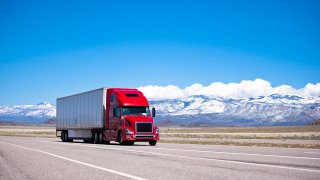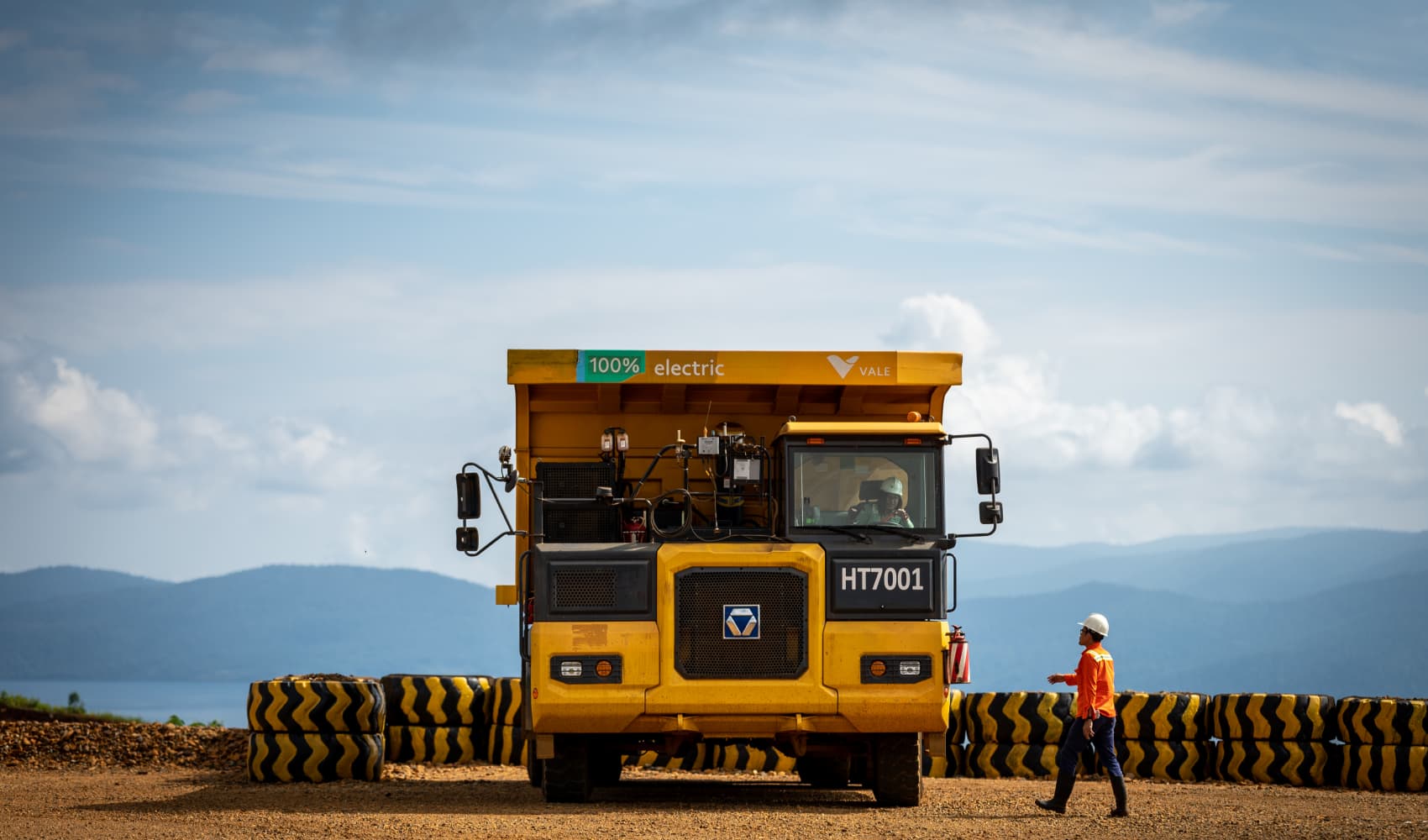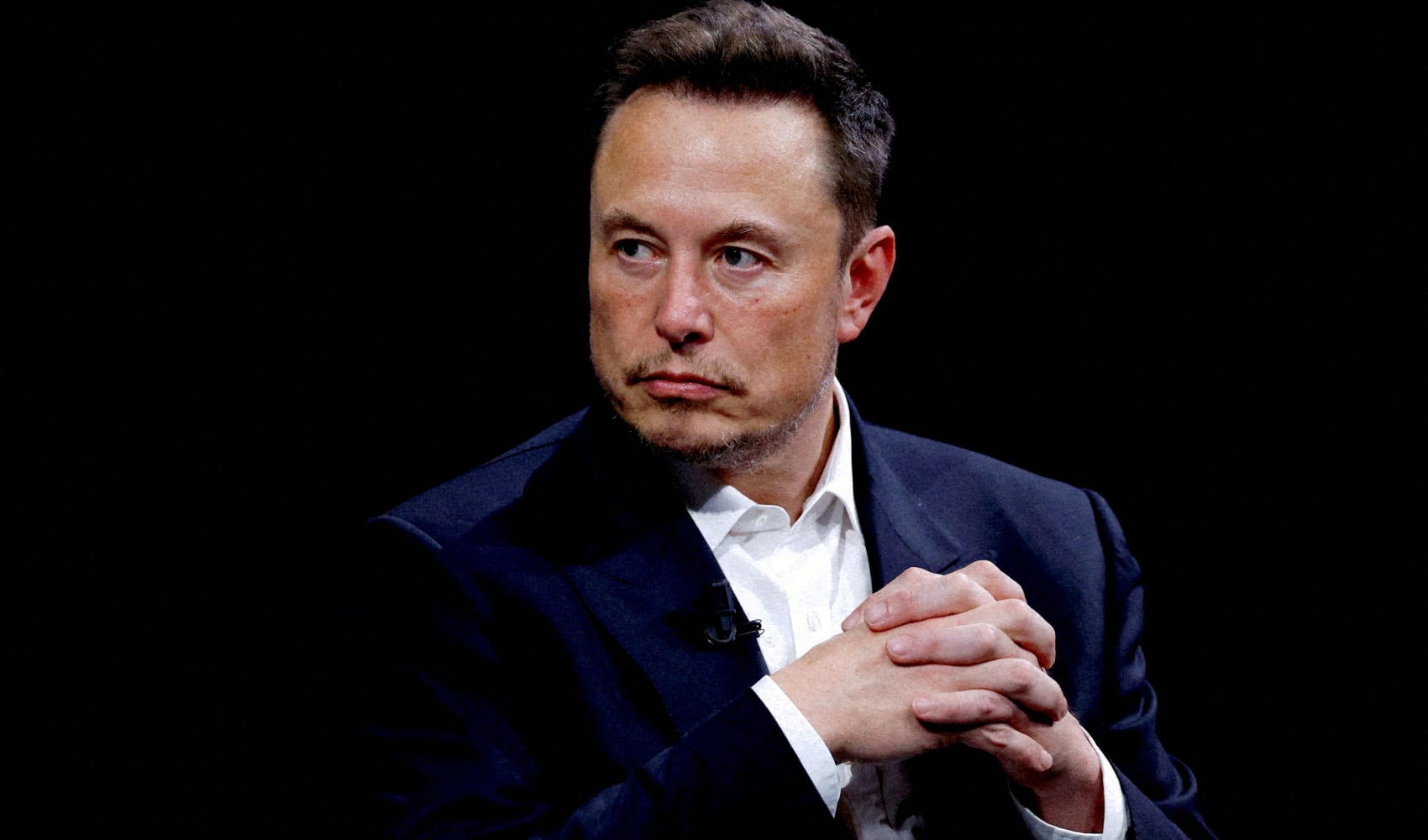
- Top executives from Flock Freight and Lineage Logistics, two key players in the global supply chain focused on trucking and cold storage, expect the current supply chain issues to last at least another six to nine months.
- But both companies, which have recently raised large rounds of funding from investors, say problems won't end for global transportation: it has long been an inefficient industry that needs to innovate, and as part of that, focus on climate change.
The global supply chain crisis is not going to end any time soon, according to top executives at key companies in the trucking and cold storage sectors, but thinking about the shipping situation as a one-time event caused by the pandemic misses a larger problem. A real fix requires understanding that the global supply chain has long been inefficient and requires a better model — one which incorporates climate change as a critical risk and business mission — and that will take years to build.
How inefficient is logistics? Oren Zaslansky, founder and CEO of Flock Freight, which creates algorithms to maximize trucking loads, recently told the CNBC Disruptor 50 Summit that as ports across the U.S. deal with long wait times for vessels, and there are not enough trucks for the loads that are coming off the cargo ships, the loads that do finally hit the road as "full" often do so with plenty of empty space inside the freight truck's trailer.
Get San Diego local news, weather forecasts, sports and lifestyle stories to your inbox. Sign up for NBC San Diego newsletters.
Right now, there may be 10 truck loads ready to go but only one driver is available, and one-third of those trucks loads aren't close to full. That means the customer is "paying to ship air," Zaslansky said, and that is nothing new in the sector.
Flock Freight's business model is bridging the gap between the 60%-70% that has commonly been defined as "full" in the freight trucking business, and by using proprietary algorithms getting trucks to 100% full through the concept of shared truckloads (think Airbnb for trucking). That can help to solve the truck driver shortage, but Flock Freight sees the supply chain in much bigger terms. All that air being shipped also is generating unnecessary greenhouse gases. That amounts to a lot of empty space needlessly adding to the planet's climate change challenge from a trillion-dollar-plus freight sector. Flock Freight estimates its shared truckload solution cuts "less than truckload" freight carbon emissions by up to 40%.
Flock Freight is the freight industry's first company to make it through the B Corporation certification process, which required overcoming some preconceptions about what it does. When Flock Freight first applied to become a B Corporation — companies with business models designed to balance purpose and profits, and which are continually assessed on metrics related to workers, customers, community, governance and the environment — the logistics start-up was denied.
Money Report
"You're the bad guy, creating the greenhouse gasses and burning fossil fuels. Why would you apply?" Zaslansky recalled the reviewers as saying.
Flock Freight persisted, explaining its model of using algorithms to make trucking more efficient, and when Zaslansky needed to, making the case for trucking as a key to sustainability in simpler terms: "I think you guys like eating, so let's be real."
The company became a certified B Corp. in June 2020.
Zaslansky, who has been in trucking for much of his adult life, said while there has been a lot of focus on trucker shortages and the supply chain struggles, these are not new phenomena to those familiar with the industry. The long-standing problems which have reached the point where there are as many as one million too few truckers on the road have just entered a phase of "extreme volatility."
The underlying problems that lead to air being shipped at a financial and environmental cost — a global logistics industry that even with all of the data and technology available today is still short of 20/20 real-time supply chain vision — will still need to be solved after this acute global shipping crisis has passed.
"What we haven't figured out in the last 18 months is getting those things to line up in time and space," Zaslansky said.
Billions invested in rewriting rules of logistics
Billions are being invested in getting the empty space out of the logistics economy in the years ahead.
Flock Freight just completed a $215 million Series D funding round led by Softbank's Vision Fund 2, a deal that reflects rapid growth during the logistics upheaval of the pandemic economy and pushed its valuation by private investors above $1 billion.
The company has grown about 13x to 14x since January 2020, as the volatility in the supply chain produced an opportunity for Flock Freight, which ranked No. 42 on the 2021 CNBC Disruptor 50 list. "We have no expectation of that slowing down," Zaslansky said of the recent growth.
Softbank had led a previous round of investment in the company less than a year ago and at that time Flock Freight had to provide growth projections. When a private company seeks money from Softbank, providing them with "big numbers" is part of the test, he said, and Flock Freight "exceeded those. We went well beyond all the projections we gave them."
It is not alone among start-ups seeking better ways to manage trucks on the road. Former Amazon executives started Convoy, which ranked No. 12 on the 2021 Disruptor 50 list. Convoy has estimated that 80% of every freight dollar is spent on trucking, and 35% of miles traveled are "wasted," or 72 million metric tons of CO2 equivalent emissions.
There is also Uber Freight, Next Freight and KeepTruckin, all offering new freight models with various approaches to the long-standing issues, and trucking is not the only puzzle in logistics that is attracting increased investment.
How refrigerated railcars factor in climate
Lineage Logistics, the largest cold storage company in the world — and responsible for the preservation of the food supply chain for many of the largest food companies, including Hostess and Blue Diamond — has been raising a lot of money, too, close to $5 billion in the past 12 months as it aggressively acquires companies to add to its global cold storage network.
Kevin Marchetti, co-executive chairman of Lineage Logistics and co-founder of private equity firm Bay Grove, said its funding over the past year is higher than all but one real estate investment trust, and all but four other private companies, as it has purchased 50 companies and entered 15 new markets.
Lineage Logistics ranked No. 17 on the 2021 CNBC Disruptor 50 list.
Marchetti said at the CNBC Disruptor 50 Summit that the issues now occurring across the largest ports in the U.S., from the West Coast to the Gulf and East Coasts, as well as in Asia, reinforce why it is so important to eliminate waste and be more efficient with supply chains.
Lineage is not only in the warehouse and trucking sectors of the supply chain, but through a $500 million acquisition early this year has become the largest owner of refrigerated railcars in the U.S. That can have an advantage over trucking as four truckloads can be fit in one railcar, leading to a lower carbon footprint, and also helping alleviate the trucker shortage.
Neither logistics executive expects the supply chain to right itself too soon. Marchetti said the restocking of the economy as demand booms post-Covid peak, and the holiday push at the same time, "have been crazy." He thinks the problems can be worked through, but will take six to nine months.
That view is shared by Zaslansky, who said the supply chain issues will probably last until the second quarter of next year. Until then, it "will be the Wild West. ... It keeps bullwhipping. ... Just bullwhipping all over and it will take at least six months," he said, adding there is always the potential for the pandemic or natural disasters to push out that forecast.
"We're literally living in a shipping Armageddon," Uber Freight's chief Lior Ron recently told CNBC's Jim Cramer on "Mad Money."
Economists have recently said the issues will last "well into 2022" and "will get worse before they get better."
Zaslansky is fueled less by the short-term issues than remaking the supply chain to be more durable for the long term. In trucking, and for global logistics, he said that means changing the rules of the game. Instead of "iterative" change in the traditional supply chain model and modest efficiency improvements, "we will write entirely new rules," he said.
As a B Corporation, a big part of the new rules for Flock Freight are based on building a sustainable business. The most simple ways of doing things in trucking need to be rethought, such as truckers idling in their vehicles powered by diesel while recharging their devices at rest stops, which can be replaced by solar-powered stations.
Flock Freight has a partnership with Carbonfund.org through which it has agreed to offset 100% of carbon emissions of its shared shipping service through carbon offsets, paying the cost for shippers. The logistics company reduced 4,127 metric tons in carbon emissions in 2020 and this year will use the offsets to reach net neutrality in shared truckloads — offsetting 20,000 metric tons in carbon emissions.
Being the only certified B Corporation in the freight sector means also maintaining that certification status on an ongoing basis, and that not only "keeps them honest," according to Zaslansky, but has also "spawned other products" that have largely contributed to Flock Freight's recent growth. To remain a B Corp., "We have to be able to prove it with data on sustainability and growth," Zaslansky said.






